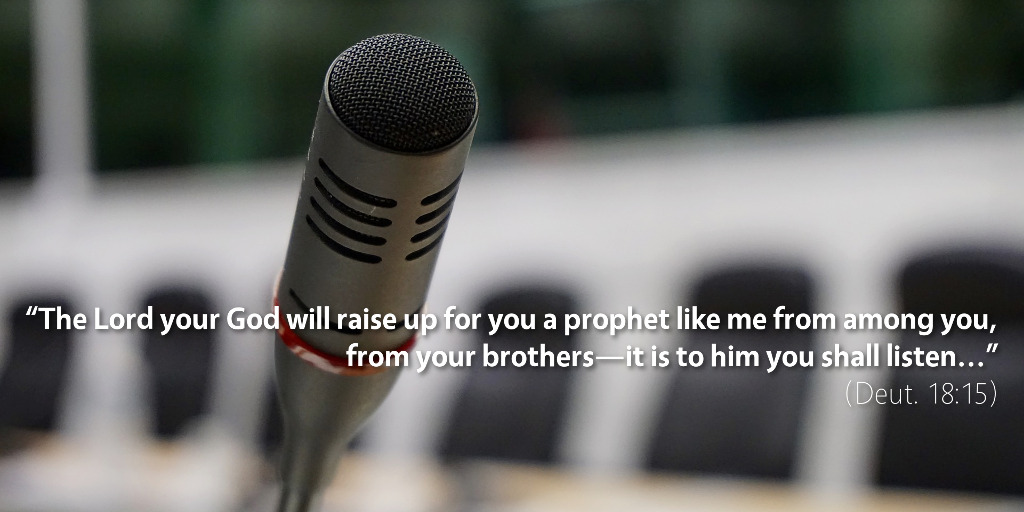Bible Readings for June 13th
Deuteronomy 18 | Psalm 105 | Isaiah 45 | Revelation 15
Exodus, Leviticus, Numbers, and Deuteronomy are filled with regulations for the Levitical priests in Israel, and in yesterday’s reading from Deuteronomy 17, Moses laid out the requirements for the kings of Israel. In Deuteronomy 18, Moses gives instruction for the last of the three major Old Testament offices: the prophets. There are two important provisions in this passage that we will look at today.
First, Yahweh gave objective criteria by which Israel could evaluate their prophets: under no circumstances should a prophet ever speak in the name of another god (Deut. 18:20), and prophets who claimed to speak in the name of Yahweh would be judged on the basis of whether or not what they said actually came to pass (Deut. 18:21–22). The punishment for failure at either of these two points was death (Deut. 18:20).
It’s fascinating to see how these requirements are tweaked in the New Testament. There, all prophecy is judged by what the preacher says about Jesus. In order to be accepted, the teaching must confess Jesus Christ’s full deity (1 John 2:18–27), his full humanity (1 John 4:1–6), his absolute lordship (1 Cor. 12:3), and his gospel of free grace (Gal. 1:6–9). Notice that the two criteria for Old Testament prophets have merged into a single criterion in the New Testament: all teaching must proclaim the truth of the person and work of the Lord Jesus Christ.
Second, we read twice in Deuteronomy 18 that a new prophet will be like Moses (Deut. 18:15, 18). We know that this prophet will be an Israelite, since he will be “raised up from among [Israel’s] brothers” (Deut. 18:18), and we know that this prophet will have (at least) the same level of authority and influence as Moses, speaking directly the words of Yahweh with the authority of Yahweh behind him.
And when we get to the gospels, we find that Jesus made no secret of the fact that he was that prophet. When Jesus gave the Sermon on the Mount, he went up on a mountain and taught the law to God’s people, just like Moses had done at Mount Sinai, except that Jesus taught “as one who had authority” (Matt. 7:29)—that is, not as someone who merely passed along the law that he had received from Yahweh, but as the lawgiver himself.
This is what the author of Hebrews meant in the opening lines of his letter: “Long ago, at many times and in many ways, God spoke to our fathers by the prophets, but in these last days he has spoken to us by his Son…” (Heb. 1:1–2). No longer does God reveal himself a little bit at a time, prophet by prophet—in Jesus, God revealed himself fully.
Yahweh has raised up his prophet like Moses—therefore, it is to Jesus we must listen.
Podcast: Play in new window | Download (5.2MB) | Embed
Subscribe: Apple Podcasts | RSS | More

Scripture quotations are from The Holy Bible, English Standard Version copyright © 2001 by Crossway Bibles, a division of Good News Publishers. Used by permission. All rights reserved.


